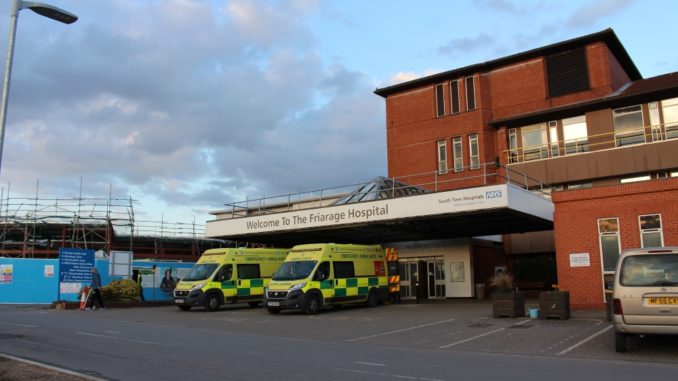
The permanent closure of an accident and emergency department serving a population of 120,000 is a “fait accompli”, a council leader has claimed, following NHS bosses announcing it must shut on a temporary basis.
The decision to suspend critical care services at The Friarage Hospital, Northallerton, in the face of “critical” shortages of staff, and in particular consultant doctors, has been greeted with dismay, with councillors saying the infirmary was suffering “a death by a thousands cuts”.
Councillors said they feared for the pressure the closure would put on Darlington Memorial and James Cook University hospitals.
It has emerged while the department needs four consultants to be considered safe, it is being run by one 67-year-old.
The move is just the latest in a series of health service reductions for residents of a 1000 sq mile area.of rural North Yorkshire served by the hospital, which have included the closure of the mental health ward and the end of consultant-led paediatric and maternity services.
In a joint statement, South Tees NHS Trust and Hambleton, Richmondshire and Whitby clinical commissioning group said the accident and emergency service would be changed to a “24/7 Urgent Treatment Centre”.
The NHS bosses said the centre would only be able to treat patients with minor illnesses and injuries, such as “slips, trips and falls and minor wounds”.
All 999 and GP emergency activity would be assessed for its appropriateness before arrival at The Friarage, they said.
An NHS spokesman said: “We need to make some urgent temporary changes to the services we provide at the Friarage Hospital in Northallerton from March 27 in order to ensure we continue to provide safe clinical services and to mitigate the increasing risk of an emergency evacuation of the site on patient safety grounds.
“These changes only apply to critical care services. The vast majority of the services at the Friarage Hospital will remain unchanged, with 89 per cent of patients unaffected by these changes.”
The NHS spokesman said patients with major trauma and serious illnesses, sich as stroke, spinal or head injuries will continue to receive specialist treatment at the James Cook University Hospital, Middlesbrough. He said NHS bosses had been “managing the risk in the provision of our critical care services over the last 18 months due to ongoing gaps in our workforce”.
The spokesman said despite striving to recruit staff for two years, the workforce shortage had now reached a “critical point”, with only one consultant, rather than four, covering critical care and only two consultants, rather than eight, covering critical care out of hours.
He said: “Over the next four weeks we will be working with our partners to develop operational plans for these changes, taking account of the impact on our patients, staff and communities, including minimising disruption and distances to travel.
During the recent extensive public engagement on the Friarage Hospital, we committed to develop a safe and sustainable future for the hospital, and this remains our intent.
We have worked over the last 18 months to develop a clinical consensus on delivering an innovative, but sustainable model for the Friarage that minimises unnecessary patient movement and maintains local access.”
The NHS spokesman said once services had been stabilised it would work on a full public consultation over the future of the accident and emergency service.
News of the “temporary” changes was greeted with dismay at an emergency meeting of North Yorkshire County Council’s scrutiny of health committee, which will examine the move further at its meeting in a fortnight.
Councillor Mark Robson, leader of Hambleton Distict Council, said he felt the result of the consultation was “inevitable”. He said the announcement was similar to that made when the Lambert Memorial Hospital in Thirsk was closed by NHS bosses on patient safety grounds, which also cited an inability to attract staff.
Cllr Robson said the CCG had offered him reassurances that it was “not the thin end of the wedge”.
He said: “It concerns me that closing these beds is the thin end of the wedge. To close a ward down and then go out to consultation is the wrong way around. It would seem to me a fait accompli.”


Be the first to comment